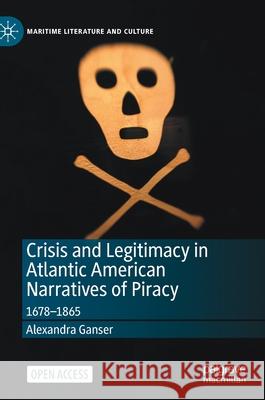Crisis and Legitimacy in Atlantic American Narratives of Piracy: 1678-1865 » książka
topmenu
Crisis and Legitimacy in Atlantic American Narratives of Piracy: 1678-1865
ISBN-13: 9783030436223 / Angielski / Twarda / 2020 / 289 str.
Crisis and Legitimacy in Atlantic American Narratives of Piracy: 1678-1865
ISBN-13: 9783030436223 / Angielski / Twarda / 2020 / 289 str.
cena 201,72
(netto: 192,11 VAT: 5%)
Najniższa cena z 30 dni: 192,74
(netto: 192,11 VAT: 5%)
Najniższa cena z 30 dni: 192,74
Termin realizacji zamówienia:
ok. 22 dni roboczych
Bez gwarancji dostawy przed świętami
ok. 22 dni roboczych
Bez gwarancji dostawy przed świętami
Darmowa dostawa!
Kategorie:
Kategorie BISAC:
Wydawca:
Palgrave MacMillan
Seria wydawnicza:
Język:
Angielski
ISBN-13:
9783030436223
Rok wydania:
2020
Wydanie:
2020
Numer serii:
001083130
Ilość stron:
289
Waga:
0.51 kg
Wymiary:
21.01 x 14.81 x 1.91
Oprawa:
Twarda
Wolumenów:
01
Dodatkowe informacje:
Wydanie ilustrowane











